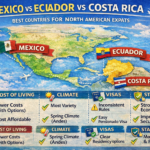
In recent years, volunteering abroad has transformed into a booming industry, offering travelers the chance to explore new destinations while making a positive impact. However, this experience, often dubbed “voluntourism,” comes with an unexpected twist: participants are now paying for the privilege of volunteering. Once seen as a selfless act where people donated time and skills, volunteering abroad has increasingly become a product to be bought, with organizations and agencies offering curated opportunities for a price.
The Appeal of Volunteering Abroad
The idea of combining travel with meaningful work holds an undeniable allure. From teaching English in rural schools to conserving wildlife in remote jungles, these experiences promise cultural immersion, personal growth, and the satisfaction of contributing to a worthy cause. For younger travelers, especially gap-year students and recent graduates, volunteering abroad is seen as a way to enhance their resumes, develop skills, and foster global connections.
This trend has become so popular that the global voluntourism market is now estimated to be worth billions of dollars annually. Organizations market programs in exotic locales like Tanzania, Peru, and Thailand, offering short-term placements ranging from a few days to several months. Travelers can choose projects aligned with their passions—be it education, conservation, healthcare, or community development.
Paying to Volunteer
What surprises many is the cost associated with these programs. Prospective volunteers often pay hundreds or even thousands of dollars to join. Fees typically cover accommodations, meals, training, in-country transportation, and administrative costs. Some organizations argue that these fees are necessary to sustain projects, provide resources, and ensure volunteers are supported.
Take, for example, a two-week wildlife conservation program in South Africa. Participants might pay $2,000 to $3,000 for the experience, excluding international airfare. Similarly, teaching English in Cambodia could cost $1,500 for a four-week placement. While such fees may seem counterintuitive, providers claim they ensure high-quality experiences for both volunteers and host communities.
For many travelers, these fees are worth it. They allow access to pre-arranged placements, cultural guidance, and a safety net in unfamiliar settings. However, critics argue that the commercialization of volunteering can prioritize profit over genuine impact, leading to concerns about “voluntourism.”
Criticisms of Voluntourism
Critics highlight several potential pitfalls of the pay-to-volunteer model. One concern is the ethical implications of short-term projects in vulnerable communities. For instance, orphanage volunteering has faced scrutiny for unintentionally perpetuating a cycle of dependency. Some unscrupulous organizations may even exploit children by keeping them in institutions to attract paying volunteers.
Another issue is the potential for volunteers to take away jobs from locals unintentionally. While the intention is to help, unskilled volunteers may displace local workers or provide a level of service that cannot be sustained once they leave.
Furthermore, critics argue that some programs focus more on creating appealing experiences for travelers than addressing the real needs of communities. Projects may be chosen based on marketability rather than long-term sustainability, raising questions about who truly benefits from these arrangements.
Finding Ethical and Affordable Opportunities
Despite these criticisms, volunteering remains a powerful way to connect with other cultures and make a difference. To ensure their efforts are impactful, travelers must research programs thoroughly.
Some tips for finding ethical opportunities include:
- Choose non-profits over for-profits: Organizations driven by a mission rather than profit are more likely to prioritize community needs.
- Look for transparency: Reputable programs clearly explain where fees go and how projects are developed.
- Prioritize skill-based placements: Roles that align with a volunteer’s expertise often have a greater impact.
Additionally, there are still opportunities to volunteer without paying exorbitant fees. Platforms like Workaway and WWOOF (World Wide Opportunities on Organic Farms) connect travelers with hosts who offer free food and accommodation in exchange for work. These arrangements provide a more reciprocal experience, where both parties benefit equally.
A New Perspective on Travel
Voluntourism is undeniably reshaping the way people travel. While paying to volunteer might seem counterintuitive, the opportunities it provides can be life-changing for both participants and host communities when done ethically. As the industry continues to grow, travelers need to approach these experiences with care, ensuring their contributions leave a meaningful and lasting impact.
For those seeking to explore the world while giving back, volunteering abroad offers a unique blend of adventure and purpose. However, a little research and a critical eye are crucial to ensuring these journeys truly live up to their promises.









